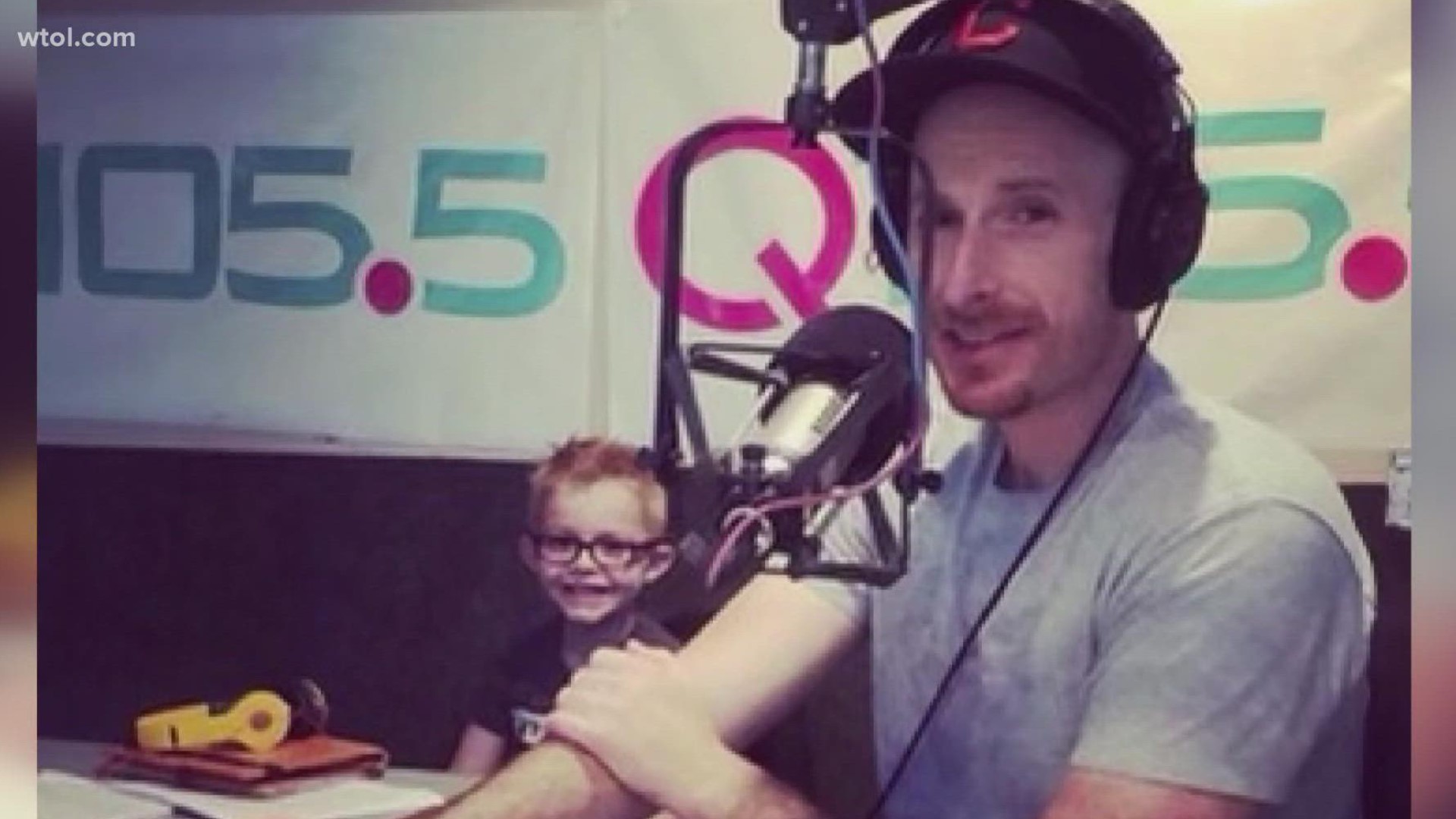TOLEDO, Ohio — September is National Suicide Prevention Month.
Eric Chase takes his dogs Diddy and N'Dre on a walk.
For pet owners, it's a mundane task, but for Chase, every tip-tap of those claws on the pavement is a stride further away from the darkness.
"It was hopeless to me, I was always going to have inflamed body parts, I could never be active, I could never feel any happiness," Chase said.
Doctors diagnosed Chase with a condition that caused severe joint pain.
With a body in pain and struggling with his mental health, the radio personality found himself in a fog.
"That's when the suicidal thoughts would pop into my head," Chase said. "I'd hold a knife in my hand in the kitchen and I'd go 'I've watched enough 'Law & Order' to know where dangerous parts of my body are and I could bleed out.'"
There were a few things that kept him holding on; family and one special soul in particular.
"I'd have some of those nights and I'd look at Diddy down below and just go 'I would love to die, it would erase this hopelessness and I'd love to die, but I've got a dog and I've got to take care of him,'" Chase said.
"The most important thing to remember is you are not alone," Jen Wakefield, Director of the Lucas County Suicide Prevention Coalition, said.
Chase got treatment for his physical pain, which allowed him to be more active.
He found even more support from the Lucas County Suicide Prevention Coalition.
"If you need a hand to hold along the way, that's something we do because we quite literally walk the walk. And I think the more people come out and de-stigmatize these things the more I think others are going to be willing to grab the hand," Wakefield said.
You'll find one of those hands is Eric Chase.
He's found a purpose with his struggles and is always willing to share what advice he wishes he was given.
"Do you want to feel better? If somebody would've asked me that in 2006, 08, 2010, I would've said absolutely, yes," Chase said.
The Lucas County Suicide Prevention Coalition is having an in-person meeting this Friday at 2:15 p.m. at the Kent Branch Library.
Anyone experiencing a crisis, even a crisis unrelated to thoughts of suicide, can contact the National Suicide Prevention Lifeline at 800-273-8255. The Lifeline provides 24/7, free and confidential support for people in distress, prevention and crisis resources for you or your loved ones and best practices for professionals.
If you are in need of support, seek help right away.
Mental Health Resources
In addition to The Willow Center and Unison Health, there are other ways you can find support for your emotional and mental wellbeing.
The Lucas County emotional support hotline is available at 419-442-0580 from 8 a.m. to midnight and offers peer support.
If you want to talk to someone and are not in immediate danger, Text "4hope" to 741-741 to be connected to the Ohio Mental Health and Addiction Services Crisis Text Line and a trained counselor within 5 minutes. There is no charge and the information will not show up on your phone bill.
NAMI Greater Toledo Family Navigators is available at 419-243-1119 M-F from 8 a.m. - 4:30 p.m. and provides non-emergency support and resources.
If you are a young member of the LGBTQ+ community and need help in any way, call the Trevor Project at 1-866-488-7386. Calls made to the Trevor Project are free and kept confidential.
Emergency Mental Health Support
NAMI Greater Toledo's Recovery Helpline to connect with local, trained crisis counselors for mental health emergencies can be reached at 419-255-3125. Local trained counselors are available to help with mental health emergencies 24/7.
You can also contact national NAMI crisis counselors by texting NAMI to 741-741.
Another local resource is Rescue Mental Health at 419-255-9585 or the Wood County Crisis Line at 419-502-4673.
If a situation involves immediate danger to you or a loved one, NAMI Greater Toledo says calling 911 and talking with police may be necessary. It is important to tell 911 that it is a psychiatric emergency and ask for police officers trained in crisis intervention (CIT).
MORE FROM WTOL 11:

